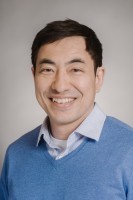Dr. Jousse Lecture Series
Welcome to the new Dr. Albin T Jousse Lecture Series in collaboration with Best Practice Forum, which is sponsored by the Rehabilitation Engineering Laboratory, the Spinal Cord Rehab Program, the Neural Engineering and Therapeutics Team, and Toronto Rehab.
The purpose of this lecture series is to provide a venue for scientists, physicians and clinicians working in rehab settings as well as students, consumers and their caregivers to share knowledge, present the latest research findings and participate in a dialogue on what it means to live with disability. The lectures will be 45 minute long followed by 15 minutes of questions.
Coordinator of the Dr. Albin T. Jousse Lecture Series is Dr. Kristin Musselman . If you have any comments, concerns or would like to present please send us an email at kristin.musselman@uhn.ca.
The series is currently in its 11th season.

- This lecture has passed.
Dr. Kei Masani – Balance control of upright posture
April 13, 2017 @ 12:00 pm - 1:00 pm

Abstract
Compromised standing and walking functions in people with spinal cord injury critically limit the affected individuals’ ability to perform activities of daily living, and reduce their quality of life. The use of FES therapy to train impaired balance may be an effective approach to improve an individual’s ability to maintain balance of upright posture, and subsequently quality of life. Toward developing a clinically-feasible FES therapy for training impaired balance, we have been investigating the upright balance control system in humans. This lecture will summarize how humans control equilibrium of upright posture and will introduce our idea of using FES therapy for training standing balance.
About the Speaker
Kei Masani received a Ph.D. degree in physical and health education from the University of Tokyo. He is a Scientist at the Toronto Rehabilitation Institute, and an Assistant Professor at Institute of Biomaterials and Biomedical Engineering, the University of Toronto. Previously he was an Assistant Professor in Life Sciences, the University of Tokyo. He is a member of the International Society for Posture and Gait Research, the Society for Neuroscience, the International Society of Biomechanics, and the International Functional Electrical Stimulation Society. His research aims to improve the mobility of people who experience neurological impairment. His approach to investigating human movement is undertaken from a neuromechanical perspective, i.e. the union of neurophysiology and physics. With this in mind, he focuses specifically on developing accurate assessments and therapeutic tools using functional electrical stimulation for standing, walking and adapted exercise.